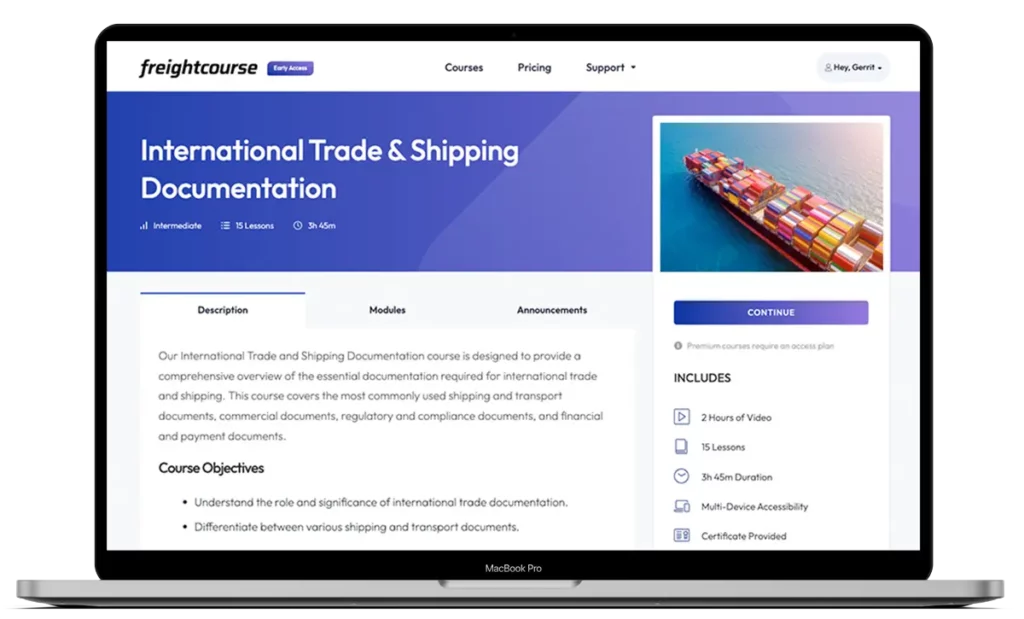Trade agreements are common between countries, as well as economic unions. They enhance seamless documentation flow and also account for duty and tax reliefs when applied correctly. For shipments to Turkey, the ATR movement certificate is a great example for that.
The ATR movement certificate, also known as ‘Admission Temporaire Roulette’, is a certificate that facilitates preferential customs duty tariffs between EU member states and Turkey for industrial goods. Products that qualify for an ATR certificate may also be completely exempt from import duties when exported from EU countries to Turkey.
In a sense the ATR is similar to the EUR.1 movement certificate. However, the major difference is that certain goods for the ATR certificate do not need to be of EU origin, in order to qualify for duty exemption. So long as the export country is an EU member state, the import country is Turkey, and the nature of goods qualify, an ATR may be applied from the exporter.
The ATR movement certificate came into effect on December 31, 1995. It’s important to note that as the United Kingdom formally left the EU on January 31, 2020, the ATR certificate is no longer applicable. Instead, the UK and Turkey have established independent bilateral trade tariffs.
Why Should Exporters Consider Applying for ATR Movement Certificates?
The main incentive of applying for an ATR movement certificate is to qualify for an exemption of import customs duties in Turkey. If no ATR certificate is produced, the exporter forgoes this benefit and the shipment is assessed with the full amount of applicable duties and taxes.
Another reason why an ATR certificate is a great option for importing goods into Turkey is because the application and the entire process is straightforward and easy to understand.
Countries That Can Submit an ATR Movement Certificate
ATR movement certificates of favorable duty rates to Turkey are exclusive to EU member countries only. However, it’s important to note that Turkey also has other bilateral agreements established with its trade partners. However, the ATR movement certificate only applies to EU member states.
Here is a list of countries where an ATR can be applied from:
- Belgium
- Denmark
- Malta
- Slovenia
- Cyprus
- Czech Republic
- Portugal
- Latvia
- Sweden
- Greece
- Italy
- France
- Hungary
- Ireland
- Germany
- Austria
- Lithuania
- Luxembourg
- Bulgaria
- Netherlands
- Poland
- Estonia
- Romania
- Slovakia
- Croatia
- Finland
- Spain
Since The United Kingdom has left the EU through Brexit, it has signed its own UK-Turkey Free Trade Agreement effective January 1, 2021 with its own regulations and guidelines. ATR movement certificates are no longer required for imports from the United Kingdom into Turkey.
What Products Does an ATR Cover?
Most industrial products qualify for exemption just as long as they are exported from or have been brought into free circulation in the EU that are imported into Turkey. Some examples of industrial products are textiles, machinery or manufactured goods. Excluded items are agricultural products, coal, and steel products.
For a complete product list, consult with your local chamber of commerce or government body that is responsible for export regulations. They are able to furnish you with the latest guidelines and product list.
What Are the ATR Requirements?
When submitting an ATR movement certificate, there are certain requirements that need to be fulfilled. The requirements mainly deal with applications, applicants and information about formalities. You may take reference on the guidelines below.
- All information must be typed or written legibly using black block letters.
- The information provided in both green and white pages must be the same.
- In order to ensure that all information is accurate, carbon paper may be used.
- All information in the ATR form must be consistent with the export invoice, export declaration, and other supporting documents needed during the export process.
- Only exporters can sign the ATR form. Forwarders or representatives cannot sign on behalf of the shipper.
- All information must be accurate and are required to be in line with official export documents. Failure to comply may lead to penalization.
What is the ATR Certificate Application Process?
Only the exporter (the shipper), may apply and submit the required ATR documentation. In addition, they are expected to have full knowledge of the goods and the shipment.
Any form of assessment or additional, edited or revised information from the nominated forwarder or representatives is generally not entertained and considered for the application process.
Here are the steps to apply for an ATR movement certificate.
Step 1: Fill Out the Original ATR Form
Request the ATR movement certificate form from your local chamber of commerce and fill out all details according to the guidelines. Beforehand, ensure that you fully understand the product list and the applicable exemptions or reduction of duties.
Step 2: File the Export Declaration
Next, you’ll need to file the export declaration according to your local requirements and show proof that the goods are being exported from an EU country or are in free circulation in the EU. The final destination should also show a location in Turkey.
Step 3: Submit the Export Invoice
Submit the export invoice to the chamber and ensure that all other documents have been filed. Your application will then be either accepted or rejected.

Get Free Course Access
If you enjoyed the article, don’t miss out on our free supply chain courses that help you stay ahead in your industry.

Gerrit Poel
Co-Founder & Writer
at freightcourse
About the Author
Gerrit is a certified international supply chain management professional with 16 years of industry experience, having worked for one of the largest global freight forwarders.
As the co-founder of freightcourse, he’s committed to his passion for serving as a source of education and information on various supply chain topics.
Follow us